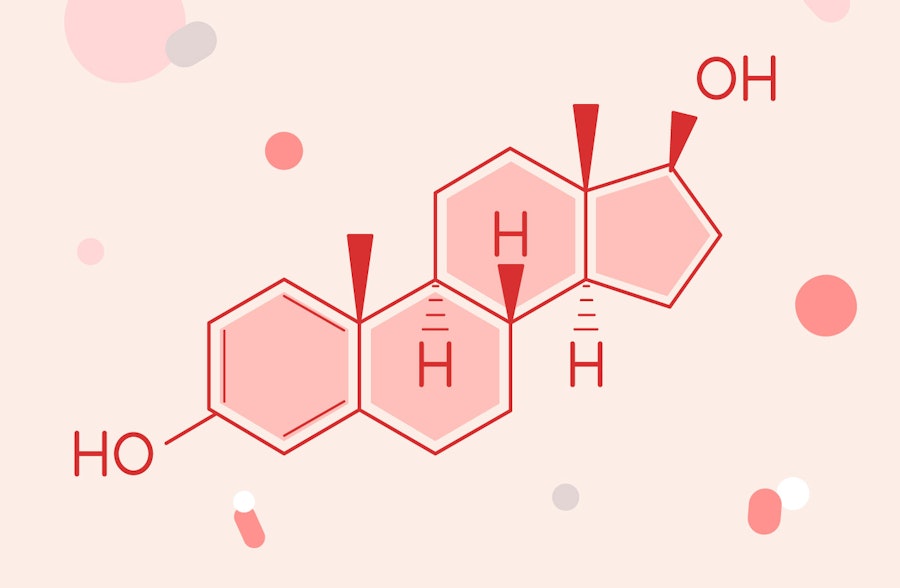Hormones 101: What is estrogen?
What is a hormone?
In simple terms, a hormone is a chemical substance that acts as a signal to different parts of the body. Hormones are produced in glands and then travel through the body to other tissues where they give a message, which in turn triggers a process. Hormones are produced by various glands throughout the body and are part of a fine balance that keeps the body functioning normally.
What is estrogen?
Estrogen or oestrogen is the main female sex hormone. Estrogen is not exclusive to female reproductive health. It also plays an important role in men’s bodies too – just as testosterone (typically associated with masculinity), has a function in the female body. However, estrogen is found in higher quantities in women, as we’ll discover from its role in the menstrual cycle.
As well as being a crucial part of a healthy menstrual cycle, you may also recognize estrogen, as it’s common in hormonal birth control, as well as in HRT (hormone-replacement therapy). Birth control methods containing synthetic estrogens work by keeping hormone levels consistent and so preventing ovulation.
Estrogen and the menstrual cycle
In women, estrogen is primarily produced in the ovaries. Throughout the menstrual cycle, estrogen levels vary depending on the stage of the cycle. This sex hormone controls the growth of the lining of the uterus in the first stage of the cycle (known as the follicular phase). After ovulation, if the female egg cell is not fertilized, then a woman’s estrogen levels decline sharply, this triggers her period and the start of a new menstrual cycle. Estrogen also has an important link with another key sex hormone, progesterone.
What is estrogen dominance?
Our bodies are fine-tuned and complex, so it sometimes happens that hormones become imbalanced. One way this can happen is through estrogen dominance, which in turn relates to other health issues. Estrogen dominance can present with the following symptoms:
- Breast tenderness and swelling
- Fibrocystic breast lumps
- A slump in libido (sex drive)
- Irregular menstrual cycle (as well as heavy periods or no periods)
- Increased premenstrual syndrome
- Mood swings
- Anxiety
- Headaches
- Weight gain
- Hair loss
- Cold hands and feet
- Lethargy
- Trouble sleeping
- Memory problems
These can also be symptomatic of other conditions as every woman’s cycle is unique. This should not be used as a diagnosis and you should speak to your healthcare professional if you have any concerns or think you might be affected by estrogen dominance.
Birth control without hormones
Natural Cycles is a birth control app that is powered by an algorithm that tracks your body temperature. This data can tell you where you are in your cycle, so you know your own fertility. If you’re looking for a non-hormonal method that will teach you more about your body, Natural Cycles might be a suitable birth control option for you.
Did you enjoy reading this article?
